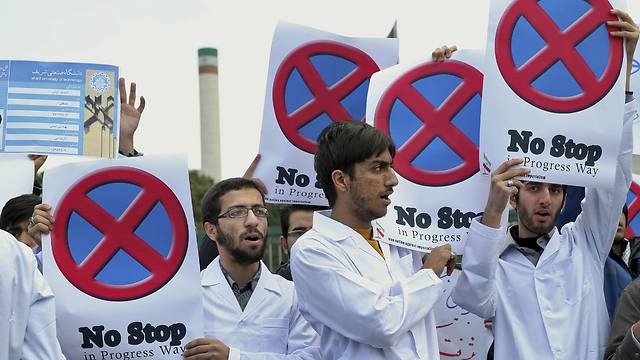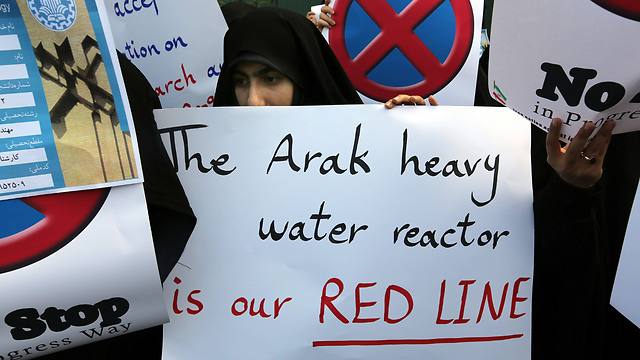
Iran to turn uranium into reactor fuel under extended deal
The conversion will make the uranium less suitable for building atomic bombs, according to a diplomatic source; US think-tank says Tehran also made specific commitments limiting its development of advanced centrifuges to refine uranium.
Iran and the United States, France, Germany, Britain, China, and Russia failed to meet a November 24 deadline for resolving their dispute over Tehran's nuclear program. They gave themselves until the end of June for further negotiations.
It was the second time this year they had missed a self-imposed target for a comprehensive agreement to scale back Iran's nuclear program, in exchange for phasing out sanctions that are hurting Tehran's oil-dependent economy.
As a result, a preliminary accord reached in late 2013 will remain in force. Under its terms, Iran halted its most sensitive nuclear activity in return for limited easing of sanctions.
Accordingly, Iran earlier this year eliminated its stockpile of uranium gas enriched to a fissile concentration of 20 percent, a relatively short technical step away from weapons-grade material. A large part of it was processed into oxide.
When the deal was first extended in July, Iran undertook to move further away from potential weapons material by converting 25 kg of the uranium oxide - a quarter of the total - into nuclear fuel during the initial four-month extension.

The diplomatic source said that under the new extension Iran would continue this work and he suggested around 5 kg would be converted per month.
In line with this, a US-based research and advocacy group, the Arms Control Association, said 35 kg uranium oxide would be turned into fuel during the seven-month period. It said Iran had also made specific commitments limiting its development of advanced centrifuges to refine uranium.
In a letter seen by Reuters on Monday, Iran and the six powers asked the UN nuclear watchdog to continue checks that Tehran is honouring its undertakings, including "monitoring of fuel fabrication" for a Tehran research reactor.
The 35-nation board of the International Atomic Energy Agency is expected to hold an extraordinary meeting on December 11 to discuss the IAEA's prolonged monitoring role, which will require additional funding, a Vienna-based diplomat said.
In July, a US official said that once the oxide had been turned into fuel plates, Iran would "find it quite difficult and time-consuming" to use it in any effort to develop a bomb.
Iran denies Western allegations that it has been seeking a nuclear weapons capability, saying its atomic energy program is aimed at generating electricity.











